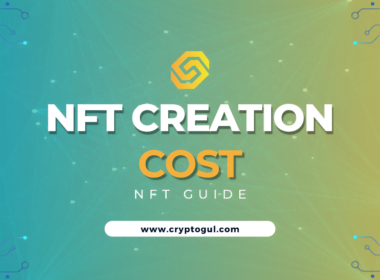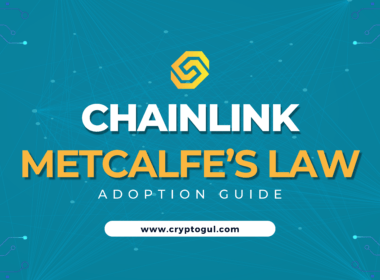Halal cryptocurrencies represent an innovative fusion of Islamic finance and digital assets.
As the world of cryptocurrencies continues to expand, the concept of Shariah-compliant digital currencies has emerged, sparking interest and curiosity within the global Muslim community.
This guide delves into the world of Halal cryptocurrencies, exploring their unique characteristics, challenges, and potential benefits for the future of Islamic finance.
What is Halal Cryptocurrency?
Halal cryptocurrency refers to a digital asset that adheres to the principles and guidelines of Islamic finance, as defined by Shariah law.
These principles include the prohibition of interest (Riba), speculation (Gharar), and unethical practices.
Sharia-Compliant Criteria for Cryptocurrencies
To be considered Halal, cryptocurrencies must satisfy the following Shariah-compliant criteria:
A. Prohibition of interest (Riba)
In Islamic finance, earning or paying interest is strictly forbidden. Halal cryptocurrencies must not generate profits through interest or any other form of usury.
B. Asset-backed nature
According to Shariah law, financial transactions must be backed by tangible assets.
Therefore, Halal cryptocurrencies should be tied to real-world assets, such as gold or real estate, to ensure their value is grounded in something concrete.
C. Ethical and transparent use cases
Halal cryptocurrencies must be used for ethical purposes, avoiding any association with gambling, alcohol, or other prohibited activities.
Additionally, the blockchain technology underpinning these digital assets should provide transparency and accountability in all transactions.
Examples of Halal Cryptocurrencies
While not all cryptocurrencies have been deemed Halal, several prominent digital assets have received Shariah-compliant certifications or are widely considered to be compliant with Islamic finance principles. Some examples include:
A. Stellar (XLM)
Stellar is an open-source, decentralized platform designed for cross-border payments and remittances.
In 2018, the Stellar Development Foundation received a Shariah-compliant certification for its network and native currency, XLM, from the Shariyah Review Bureau, an Islamic advisory firm.
B. Ethereum (ETH)
Ethereum is a decentralized platform that enables developers to create and deploy smart contracts and decentralized applications (dApps).
While not officially certified as Halal, Ethereum’s underlying technology and use cases for social good align with Islamic principles, making it a potential candidate for Shariah compliance.
C. Cardano (ADA)
Its research-driven approach and commitment to ethical practices have drawn interest from the Islamic finance community, positioning it as a possible Halal cryptocurrency.
Islamic Finance and Cryptocurrencies
The integration of cryptocurrencies into Islamic finance presents opportunities for innovation and growth in the sector.
By leveraging the transparency, security, and efficiency of blockchain technology, Halal cryptocurrencies can help streamline financial transactions, enhance financial inclusion, and promote ethical investment opportunities for the global Muslim community.
Challenges in Halal Cryptocurrency Adoption
Despite the potential benefits, several challenges hinder the widespread adoption of Halal cryptocurrencies:
A. Volatility
Cryptocurrency markets are notoriously volatile, with prices often experiencing extreme fluctuations. This volatility can be at odds with the stability and risk-averse nature of Islamic finance.
B. Regulation and compliance
Navigating the regulatory landscape of both cryptocurrencies and Islamic finance can be complex, with varying rules and requirements across different jurisdictions.
C. Awareness and understanding
Many people, including those within the Muslim community, may not be familiar with the concept of Halal cryptocurrencies or understand the nuances of Sharia-compliant digital assets.
The Role of Islamic Scholars in the Crypto Space
Islamic scholars play a crucial role in determining the compliance of cryptocurrencies with Shariah law.
Their expertise and guidance are essential for assessing the suitability of digital assets within the realm of Islamic finance and ensuring that they adhere to the principles and values of the faith.
The Future of Halal Cryptocurrencies and Blockchain Technology
As the cryptocurrency ecosystem matures and awareness around Halal digital assets grows, we can expect further developments.
This could lead to the creation of new financial products and services, tailored specifically to the needs and values of the Muslim community.
Benefits of Halal Cryptocurrencies
The adoption of Halal cryptocurrencies can bring numerous benefits, including:
A. Financial inclusion
They can help bridge the gap between the unbanked and underbanked Muslim population, providing them with access to digital financial services that align with their faith.
B. Reduced corruption and fraud
The transparency and immutability of blockchain technology can help minimize corruption and fraud, ensuring that financial transactions adhere to Islamic principles of fairness and integrity.
C. Accelerated economic growth
By unlocking new investment opportunities and facilitating cross-border transactions, Halal cryptocurrencies can contribute to economic growth and development in the Muslim world.
Conclusion
Halal cryptocurrencies represent a promising intersection between digital assets and Islamic finance.
By adhering to the principles of Sharia law, these digital assets can unlock new opportunities for the global Muslim community and drive innovation in the world of finance.
While challenges remain, the future of Halal cryptocurrencies and blockchain technology is undoubtedly an exciting and transformative prospect.
They are considered Halal by adhering to the principles of Islamic finance, including the prohibition of interest, the requirement for asset backing, and ethical use cases.
No, not all cryptocurrencies are Halal. Each digital asset must be assessed on a case-by-case basis to determine its compliance with Shariah law.
They can promote financial inclusion, reduce corruption and fraud, and contribute to economic growth in the Muslim world by providing Shariah-compliant financial services.
Yes, there are a few cryptocurrency exchanges that cater specifically to the needs of the Muslim community by offering Shariah-compliant trading and investment opportunities. Examples include Rain, a Bahrain-based exchange, and Beldex, a Malaysia-based privacy-focused exchange.
Islamic scholars provide guidance and expertise in assessing the compliance of cryptocurrencies with Shariah law. Their input is essential for ensuring that digital assets align with the principles and values of Islamic finance.







